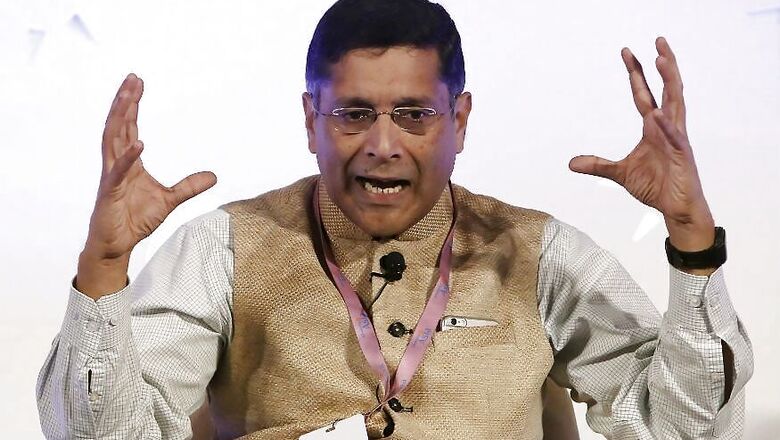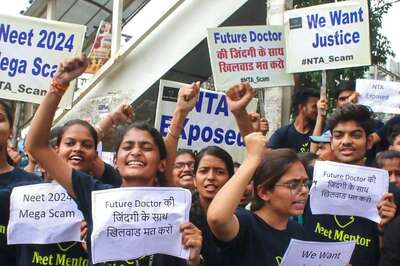
views
New Delhi: A top economic advisory panel to the Prime Minister on Wednesday rejected Arvind Subramanian's claims of overestimation of GDP, saying a point-to-point rebuttal will be issued in due course and that the former CEA by his own admission is "still unsure" about calculation of growth numbers.
The Economic Advisory Council-PM (EAC-PM) also asserted that any attempt to sensationalise what should be a proper academic debate about GDP numbers is "not desirable" from the point of view of preserving the independence and quality of India's statistical systems, all of which the former chief economic adviser (CEA) is familiar with.
In a research paper, Subramanian, who stepped down last year, has said India's economic growth rate has been overestimated by around 2.5 percentage points between 2011-12 and 2016-17 due to a change in methodology for calculating GDP.
Subramanian's paper titled 'India's GDP Mis-estimation: Likelihood, Magnitudes, Mechanisms, and Implications', published at Harvard University, also comes at a time when concerns have been raised in various quarters about the official economic growth numbers.
In its statement, the EAC-PM said the Base Year of India's income calculations was shifted to 2011-12 on the basis of recommendations of several committees with experts in national income accounting.
It was on the basis of these recommendations, started in 2008, that the government implemented the change from January 2015.
"Therefore, it is wrong to suggest that the views of experts have not been taken into account while changing the Base Year or weights or switching from Annual Survey of Industries (ASI) to Ministry of Corporate Affairs (MCA) 21," it said.
It further said Subramanian has used cross-country regressions to estimate what India's GDP should be, which is a "most unusual exercise", as is the suggestion that any country's GDP that is off the regression line must be questioned.
The proxy indicators that he used can also be questioned, it said, adding that nor does this exercise allow for GDP increases on the basis of productivity gains.
"A country's GDP is in nominal terms and any exercise should be on the basis of nominal figures, not real growth rates.
"The Economic Advisory Council will examine in detail the estimates made in Dr Arvind Subramanian's paper and come out with a point-to-point rebuttal in due course," the statement said.
The EAC-PM further said that at the moment, it is felt that any attempt to sensationalise what should be a proper academic debate is not desirable from the point of view of preserving the independence and quality of India's statistical systems, all of which the former CEA is familiar with.
"These are certainly issues that Dr Subramanian must certainly have raised while he was working as CEA, though by his own admission, he has taken time to understand India's growth numbers and is still unsure," it said.
On Tuesday, the Ministry of Statistics and Programme Implementation (MoSPI) had said it follows accepted procedures and methodologies for arriving at projections of national income, while rejecting the contention of the former CEA.
The ministry stressed that with structural changes taking place in the economy, it is necessary to revise the base year of macroeconomic indicators like GDP, Index of Industrial Production (IIP) and Consumer Price Index (CPI) periodically to ensure that indicators remain relevant and reflect the structural changes more realistically.
Such revisions not only use the latest data from censuses and surveys, but also incorporate information from administrative data that have become more robust over time.
In India, the Base Year of the GDP Series was revised from 2004-05 to 2011-12 and released on January 30, 2015, after adaptation of the sources and methods in line with the System of National Accounts 2008.

















Comments
0 comment